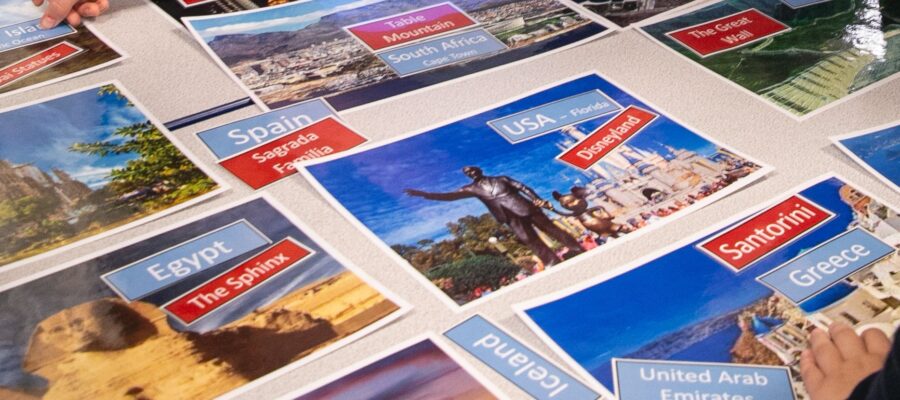
What will I study?
This vocational qualification is designed to support students who are interested in learning about the travel and tourism industry. It gives students a broad introduction to the travel and tourism industry, with an emphasis on core knowledge and fundamental skills that are transferable across other sectors. Transferable skills include communication, teamwork and research and analysis, which are valued in both higher education and the workplace.
The course consists of four units, two of which are externally assessed (58%) and two that are internally assessed (42%).
Unit 1 – The world of travel and tourism (externally assessed)
A 90 minute written examination. This unit provides the foundation for students to study other units in travel and tourism. They will explore the key components and scale of the industry, using data to analyse key trends and their impact.
Unit 2 – Global destinations (externally assessed)
A task is set and completed under supervised conditions. Students are given information two weeks before a supervised assessment period in order to carry out research. The supervised assessment period is undertaken in a single session of three hours. Students investigate and analyse information regarding: the features and appeal of global destinations, travel planning, and the factors and trends affecting their appeal.
Unit 3 – Principles of marketing in travel and tourism (internally assessed)
Students investigate the use of marketing in travel and tourism organisations and how to meet customer expectations in order to inform a promotional campaign of their own design. This is a synoptic assessment requiring students to apply learning from across the qualification.
Unit 9 – Visitor attractions (internally assessed)
Students develop analytical skills as they investigate the nature and role of both built and natural visitor attractions, their commercial success, appeal, response to diverse visitor needs and the importance of delivering a memorable visitor experience. Students will complete a number of defined vocational written tasks.
Where will it lead?
Students can progress into higher-education courses such as degrees in tourism, leisure or business studies. The wide range of skills and knowledge developed during the course will help students progress towards careers within the travel and tourism industry.
Links with other courses
Geography, ICT, Health and Social Care, Business Studies, Media Studies

